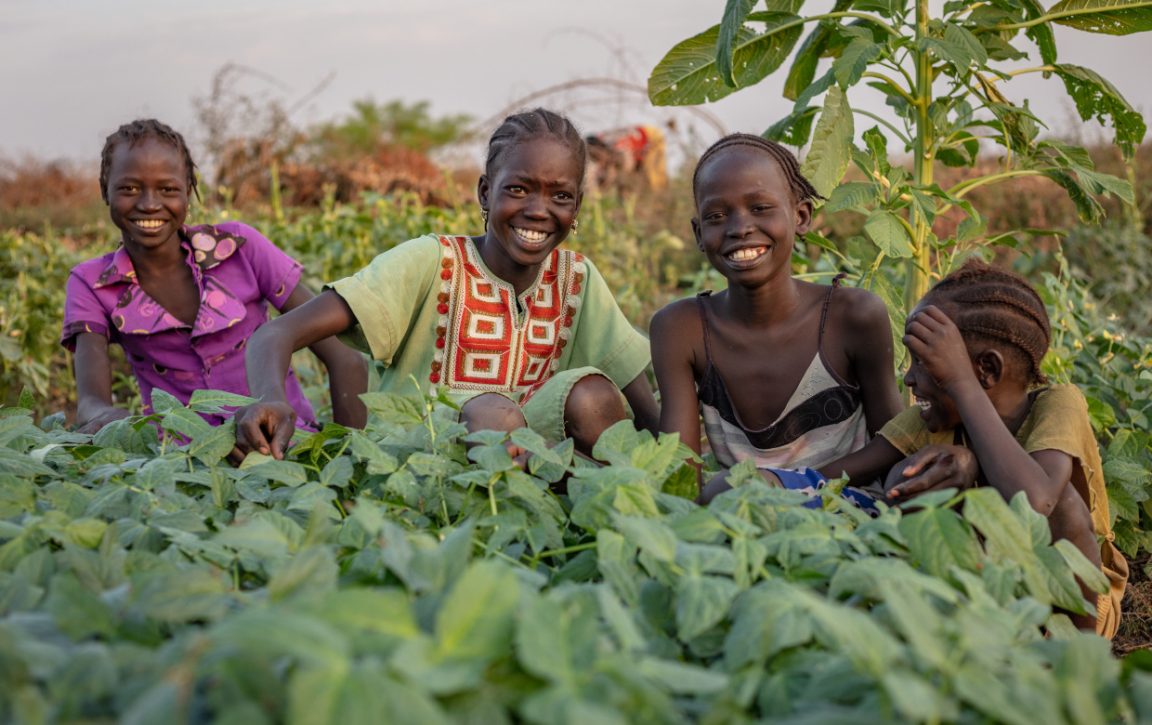Help alleviate food insecurity by donating to our sustainable
community agriculture and nutrition gardens.
As Africans, we know that in many countries, through the ravages of colonialism, conflict, natural disasters and climate change people have lost land, livestock, assets and access to water and have been removed from their own farming practices. Many skills have been lost, with devastating results.
Because JAM aims to assist people in a dignified manner it is imperative that we respond to the immediate needs of people, stabilize communities and then share with them the resources that will allow us to exit that project, safe in the knowledge that they will be able to create sustainable livelihoods without us.
We are already doing this in various ways in this FSL pillar through general food distribution; supplementary feeding from vegetables grown in our projects; community gardens and farms; livelihood training; cash and food for work or building community assets, such as roads or stores; and assisting small-scale farmers to access markets.

Projects making a difference
In 2020, JAM was able to assist a total 710,893 people in these ways. In northwestern Uganda, JAM has been involved in the Imvepi Refugee Camp which caters for refugees from South Sudan. Our kitchen gardens provide nutrition to refugees but are also used to teach them how to cultivate and grow their own vegetables once they have moved out of the camp and onto farming land, provided by the Ugandan government.
The JAM Rwanda Vocational Training Centre trains vulnerable young people in diversified trades such as hairdressing, tailoring, culinary arts, masonry, motor vehicle mechanics as well as languages, entrepreneurship and computer literacy. Agricultural skills and kitchen gardening are also taught at the centre’s model farm.
In Mozambique, JAM’s Pambarra Farm in Vilankulo District, is used to train small scale farmers, parent teacher associations and University agricultural student internships. The vegetables grown in our community farming are used to supplement the food we provide in our feeding programmes. The large greenhouse serves as a demonstration plot for teachers, small-scale farmers and agricultural workers and is also used to trial on different seed varieties.
In South Africa, gardens are being planted at Early Childhood Development Centres (ECD) and partnerships with suppliers of Reel Gardening packages and grow pod bags are being used to great effect.
By focusing on food gardens, struggling centres are able to grow a variety of vegetables ensuring a diversified diet for children. An added bonus is that children are learning from a young age how to plant their own food.
Community food garden initiatives have the potential to alleviate hunger, eradicate food insecurity and generate income, the community concept creates social ties and builds the feeling of connectedness and belonging. Ultimately, the provision of community gardens and household gardens offers the community an opportunity to better their livelihoods.
These projects are perfect examples of how JAM goes about listening to people and together with communities finds local solutions that work for them.
We are African people, providing African solutions to uniquely African problems with maximum impact.
We believe in creating an Africa that Thrives!

JAM’s agricultural programming is critical in aiding rural communities to feed themselves and ultimately, in providing a way out of abject poverty.
Our programmes encourage many individuals across our African countries of operations to plant community gardens, where we are equipping and empowering them with modern agricultural techniques. Along with this training, tools, seeds and seedlings are also provided to get them started.
Onions, Tomatoes, Eggplant, Amaranthus, Watermelon, Carrots, Garlic, Nakati, Akeyo, Malakwang, Otigo, Okra are among the varieties of vegetable seeds selected for distribution according to their nutritional value. We also distribute the tools needed to ensure gardens can be cultivated successfully. Tools distributed include hoes, forked hoes, rakes, double axe, digging bar, spades, watering cans, wheelbarrows, and plastic water tanks. Other equipment and components are also provided to facilitate making compost, irrigation and container farming.
Community Gardens contribute to improved food and nutrition security. These projects also support the development of small-scale organic gardens as a social enterprise to generate income and to establish a livelihood for vulnerable communities. JAM collaborates closely with nutrition and key stakeholders to identify vulnerable beneficiaries. JAM engages with vulnerable communities and supports learning through an exhibition community garden to share learning, skills and grow foods. JAM supports kitchen gardens and trains beneficiaries on climate resilience and post-harvest practices to ensure a continued source of vegetables in the lean dry season. On completion, JAM aims to hand over this garden to community leaders to champion vegetable growth and production initiatives.
Utilising JAM’s robust Monitoring and Evaluation (M&E) system we will ensure minimum standards are met. Start-up workshop with key stakeholders and community leaders will be held to ensure feedback is included at the outset and continues. Monitoring will include household visits and direct liaison with beneficiaries to identify and address challenges and any gaps, as well as monitor progress. Lessons and data recorded will be shared with relevant parties to ensure transparency and accountability to all.
Our Community Agriculture programmes are tailored to align with the United Nation’s Sustainable Development Goals (SDGs), those of No Poverty, Zero Hunger, Good Health and Well Being, Gender Equality and Decent Work and Economic Growth.

We focus our Community Agriculture programmes on rural communities and refugee settlements within Angola, Mozambique, South Africa, South Sudan, Sierra Leone, and Uganda.
Our programmes provide urgent life-saving interventions and direct assistance to meet immediate needs.
For the ‘At Risk’
- Community / school vegetable gardens
- Value-chain systems – crop and fishing nets, livestock management
- Livelihood training
For the ‘Stable’
- Cash for assets
- Community / school farms
- Value-chain systems – crop and fishing nets, livestock management
- Livelihood training
- Small farmer market – smallholder agriculture market systems (SAMs)
- Farmer service centres – as specifically defined
You too can help restore hope by partnering with us to provide rural and vulnerable communities with the skills and equipment needed to produce nutrient-rich food for themselves.




